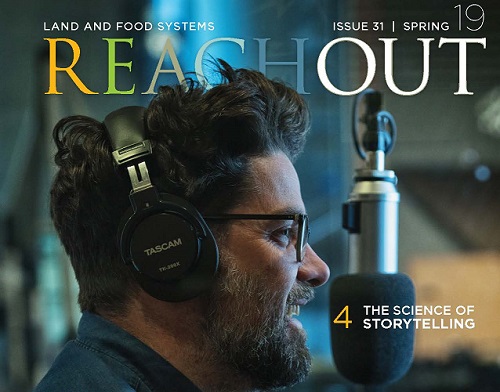
From Backyards to City Parks: Preserving Green Space
Camil Dumont (MSc Integrated Studies in Land and Food Systems 2017) is well into his first term as Park Board Commissioner for the City of Vancouver, a city that prides itself on its more 200 beaches and parks, including the historic Stanley Park. It is here that Dumont regularly attends meetings that are open to the public, and where many of the decisions regarding public space are made.
“If you had asked me a few years ago, I never would have thought that I’d be a politician today,” Dumont said.
In 2015, he was working as head farmer and executive director for Inner City Farms (ICF), a non-profit society he founded six years earlier. ICF partners with home owners and local businesses to convert their front and back yards into productive vegetable gardens, the produce of which is made available to the community through a harvest share.
“ICF grew from my passion in growing my own food,” Dumont said. “Unfortunately, private green space was a luxury I did not have, and that’s typical for many people living in Vancouver. ICF offers the opportunity to turn underused green space on private properties into working produce gardens, while creating a community around local food and sustainable practices.”
Dumont was introduced to Instructor Will Valley and Professor Emeritus Alejandro Rojas, who encouraged him to return to UBC for graduate school. “The Integrated Studies in Land and Food Systems program was the academic home for the theory I was already practicing at ICF. I focused my research on the history of sustainable food in Vancouver, and graduated with a better grounding in science and food systems.”
The City of Vancouver held municipal elections in November 2018, and Dumont saw this as an opportunity to take his work at ICF and UBC even further. “If we want a sustainable future for our kids, I believe that my generation needs to step up and take the lead. And because most of the world now lives in cities, parks have become our direct experience with the natural world.”
Since the election, Dumont has approached every decision on his desk with a climate lens, looking for any opportunities for a greener future and city.
“I am grateful for the opportunity to do this job,” Dumont reflects. “It has opened doors to communities that I haven’t had the chance to work with before, and seeing different groups of people overcome differences to preserve green space in a city is inspiring.”
Photos of Camil Dumont courtesy of Adam Blasberg
